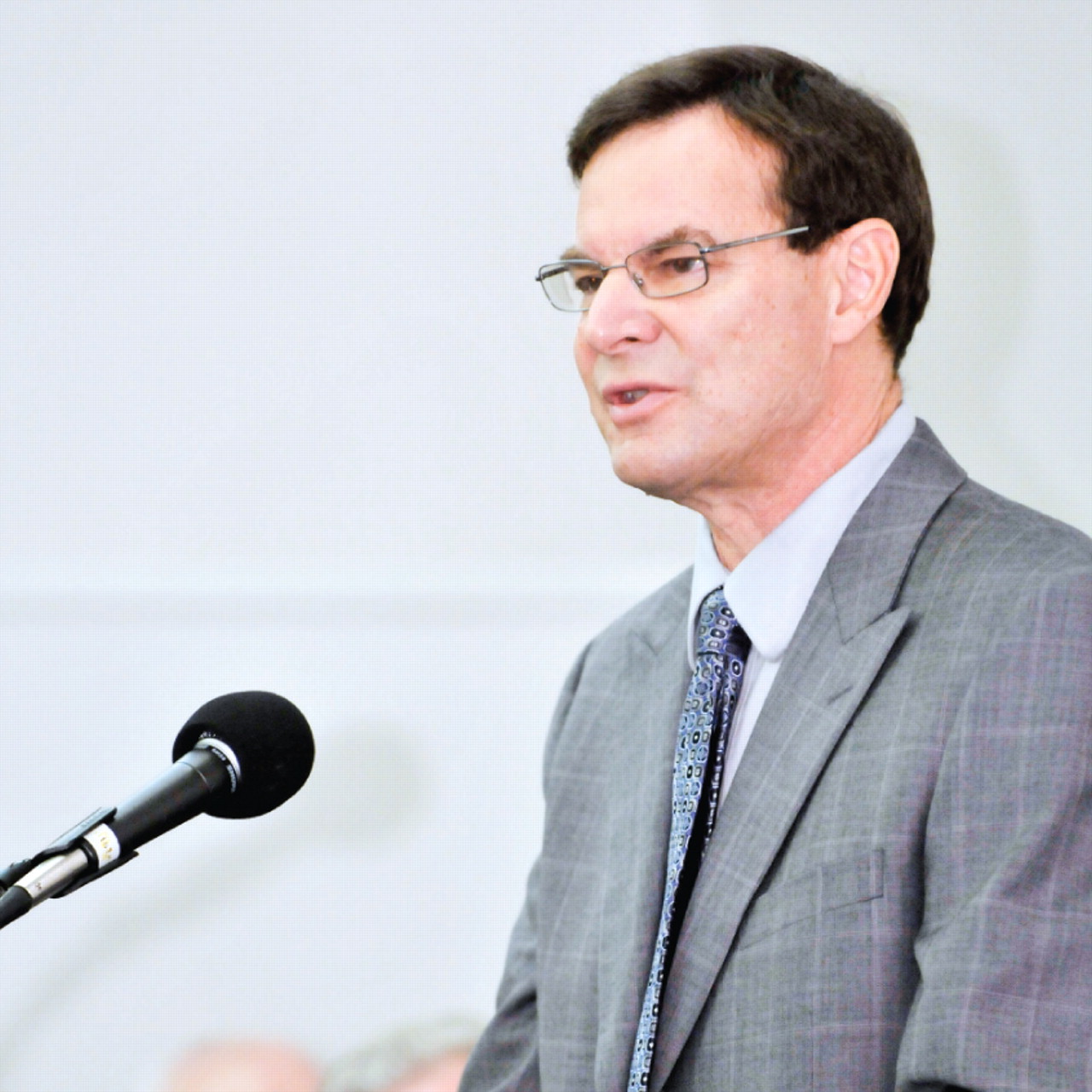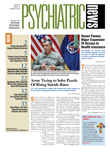Religious struggles are a part of life, and many patients both want and could benefit from including their discussion in the psychotherapeutic process, said Kenneth Pargament, Ph.D., who received APA's Oskar Pfister Award at the Institute on Psychiatric Services meeting in New York in October. The award, supported by the Harding Family Foundation and the Association of Professional Chaplains, honors outstanding contributions to religion and psychiatry.
“Religion is a search for significance in relation to the sacred, not simply a particular set of beliefs or practices,” said Pargament, a professor of psychology at Bowling Green State University in Bowling Green, Ohio. Religion can be a potent force in the lives of believers, because it deals with matters of deep significance that are tied to thought, feelings, actions, and relationships, he said. At its best, religion can lessen anxiety (“God is watching over me”), provide insight into the self and the world, and create a sense of community with other believers.
Religious struggle arises when illness, disaster, or personal transgression trigger feelings that are in conflict with someone's beliefs.
“They may express this struggle in different ways, said Pargament. “They may feel confused by their faith, angry at God, or feel that God has abandoned them, or that they are abandoned by people in their congregation,” he said. “They may disagree with family and friends about spiritual matters.”
In response, they struggle to reconcile their religious worldview with the misfortune that has befallen them. He recalled the case of one church-going man whose family had suffered numerous illnesses and deaths over a short time and who told Pargament, “I wish God would just leave me the hell alone.”
Previously in such instances, Pargament would draw on biblical stories of suffering and acceptance, but this man's plight went beyond that.
“I dropped the Job metaphor and thought about Jacob wrestling with the angel,” said Pargament. The combat left Jacob with the angel's blessing, a draw in the wrestling match, and a limp—just the kind of mixed results most people end up with in real life.
In fact, the relationship between religious struggle and psychopathology is circular: struggle can produce psychopathology, and psychopathology can produce religious struggle, he said. Religious struggle can depress mood, increase mortality, and decrease physical functioning. In one study, religious struggle at baseline predicted increased risk of psychiatric symptoms one year later. However, whether cause or consequence, religious struggle can also lead to spiritual and psychological growth.
“We only have to look at religious traditions for strugglers—Moses, Buddha, Jesus, Mohammed—who emerged stronger from their trials.”
Religious struggle can help or hurt in trying to overcome mental illness. It can be a source of support or stigma. Chronic strugglers can get stuck in their struggle and end up with worse outcomes for their physical and mental health.
Religious leanings can help some people with serious mental illness. One study found that 45 percent of people with schizophrenia who were surveyed said that religion is the most important element in their lives, said Pargament. “Religion can empower them to overcome apathy and have a positive impact on positive symptoms.”
Practitioners may feel uncomfortable asking questions about spirituality, but it is inappropriate not to address that dimension of patients' lives if it is important to them, he said.
“Questions about the place of religion should be part of the initial diagnostic process with all patients,” he said. “Psychiatrists and psychologists have the problem [about bringing up the issue of religion], but patients want it in the discussions, so the professionals need to learn it. We must be mindful of that, or we will have no clue about what our patients are going through.”
Facing up to the possibility of religious struggle can have practical implications for both patient and therapist. Mental health professionals can ask about religious struggle as early as in the diagnostic interview, said Pargament.
“Asking patients about how they are coping can open up the discussion,” he said. “Listening to and normalizing religious struggle can elicit feelings of grief or guilt that they may feel relief addressing.”
Mindful of their own limitations, clinicians should also build bridges to religious communities. Typically, mental health professionals have seen the clergy as a source of referrals, but reversing that path may be equally helpful to the patient, he said. Clinicians can develop a list of pastoral referral sources to which they can send those patients who desire a closer religious connection.
“We can also become more religiously and spiritually literate ourselves and work collaboratively with clergy,” he said. This can be especially useful when the patient sees mental illness as a punishment for sin.
Professionals can also develop and evaluate interventions to address religious struggle. Pargament has run a nine-week program for college students in which they can articulate many of the conflicts and spiritual struggles that occur as they move away from home and encounter college life.
Religious struggle can even be anticipated, he said. The U.S. Army's recently developed Comprehensive Soldier Fitness program is intended to prepare troops for deployment and combat and includes some discussion of spiritual conflicts they are likely to encounter.
Pargament is not worried about a patient's imposing his or her religious views on him and said such attempts may be symptoms of the patient's problems. The therapist can use a patient's inquiry about the therapist's religion as an opening for further discussion.
“Attending more fully to the religious dimension of patients' lives can help people heal more fully,” he said. “Just open the conversation with patients; listen, and learn from them.”


